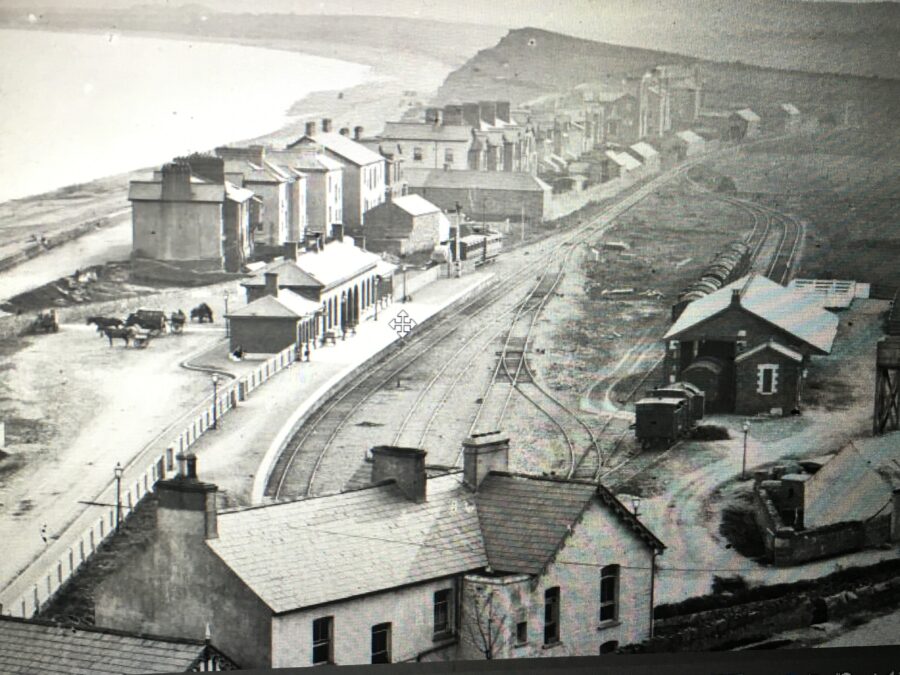
Kieran’s Our City, Our Town Article,
Cork Independent, 28 September 2023
Recasting Cork: Thirty Years of the Children’s Excursion
Bringing 3,000 impoverished children annually to Youghal was a large scale effort by Cork City’s Poor Excursion Committee. It was chaired by William F O’Connor, solicitor, and former Lord Mayor of Cork. In his analysis of the event of the annual event on 19 September 1923 in the Cork Examiner, he was proud to note that the event in 1923 was its thirtieth anniversary and that it was a “eminently successful one”.
William gives his highest praise to the ladies and gentlemen members of the committee that planned out the excursion and to the many subscriptions made to a central support fund; “It was a highly laudable fixture, and it was indeed most gratifying to find that members of the committee worked in most untiring fashion to make it what it proved to be, a delightful outing for the poor children of Cork, and a credit to all who helped in its conduct. Since its inception the excursion has been eagerly looked forward to by the poor of the city, and no charity has ever attained such a measure of popularity”.
Reference is also made by William that the event was initiated by one of Cork’s distinguished citizens, the late Mr Augustine Roche, in 1883-1884. Augustine entered the Corporation of Cork in 1883. He was elected Mayor for the years 1893 and 1894, and when in that position he instituted an annual excursion and the Christmas dinner for poor-children, which helped some 5,000 children.
Augustine was appointed City High Sheriff for 1902-3, during which years the Cork International Exhibition was held. He represented Cork City from 1905 to 1910 as MP in Westminster, when he was defeated, but a year later was again returned to Parliament for North Louth unopposed on the disqualification petition of another MP. One of the best-known and most highly esteemed citizens of Cork, he was, through all his public life, a leader in philanthropy. Augustine had a wholesale wine trade on King Street or MacCurtain Street and had business dealings with every county in the south of Ireland.
Ahead of the 19 September 1923 excursion, elaborate arrangements were made for the thirtieth anniversary and for the success of the event. Tickets at the Cornmarket were given out a week before hand at the Cornmarket and the Civic Guard and the Fire Brigade were asked to assist in keeping order during the distribution.
On the day of the excursion queues were quickly formed in every part of the outward premises, and marshalling everyone onto the Cork-Youghal trains was a big operation. As the morning advanced, the numbers of children assembling became considerably enlarged, and half an hour before the time fixed for the departure of the first train the Cork Examiner records a scene of a “very animated character” was on display.
Stewards appointed to attend to the arrangements at the Cork station were promptly in attendance. Members of the National Army, Civic Guard, and Fire Brigade were also present to render every possible assistance. The Cork Examiner records that the children were well behaved; “They were exceedingly orderly and well-behaved and gave little trouble to those who carried out the arrangements, and were most anxious for their comfort, accommodation and enjoyment”.
The Cork Examiner noted of the marshalling preparations:”Members of the Excursion Committee, as well as specially appointed stewards, were posted at all points leading to the barriers of platforms from which trains to Youghal started, while inside these barriers prominent members of the committee had assembled and made most perfect arrangements for the passage of the children to the awaiting trains. In this work, which was conducted in faultless fashion, members of the National Army, Civic Guards, and railway staff rendered valuable assistance”.
No less than four trains were required for the conveyance of the excursionists to Youghal. The first train left at half past eight and the last sonic time after ten o’clock, and by noon, close on 5,000 children had been safety brought to Youghal. The train arrangements at Youghal were attended to by Mr. Brickley, stationmaster.
As soon as the children reached their destination, they broke into no less than sixty sections and in each group a leader and 3-4 volunteers made sure everyone was safe. Once on the beach, the sunshine shone and the children indulged in bathing and sports, after which they proceeded to the Clay Castle and were provided with sandwiches, minerals and sweets.
The meat within the sandwiches was kindly cooked by the staff of the Cork Mental Hospital under the supervision of the Resident Medical Superintendent Dr Owen McCarthy. Even music was provided on the beach by the Greenmount Industrial School under the conductorship of Mr Ogden. Local people, especially Mr. O’Gorman, vice-chairman of the Urban Council and Mr James Cashman, of Youghal Urban District Council, were noted for their “efforts for the enjoyment of the youngsters and the success of the excursion”.
A few accidents, each of a minor character, took place and were attended to by Dr Orpen. Competent local oarsmen patrolled the waterway beyond the shore to present drowning incidents.
When the time came for the 3,000 children to board the trains back to Cork, it was overseen again by the National Army, members of the Civic Guard and the Cork Fire Brigade. Everyone returned safely and for a few hours the 3,000 children had been given a day away from the heart of impoverished slums in Cork City.
Many thanks to everyone who participated in this year’s season of walking tours. They will start again next April.
Caption:
1221a. Youghal beach and Railway Station c.1910 (source: Cork City Library).